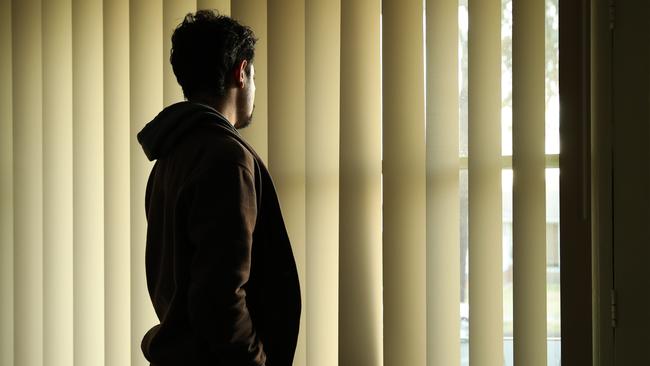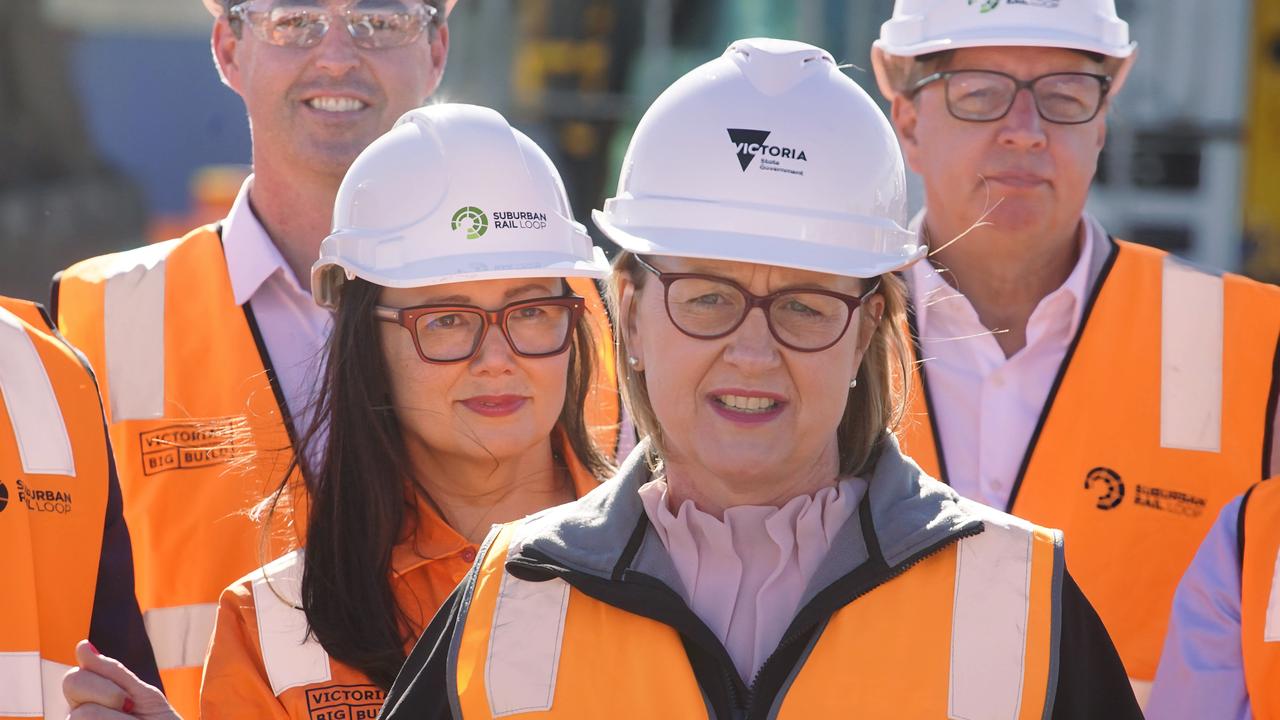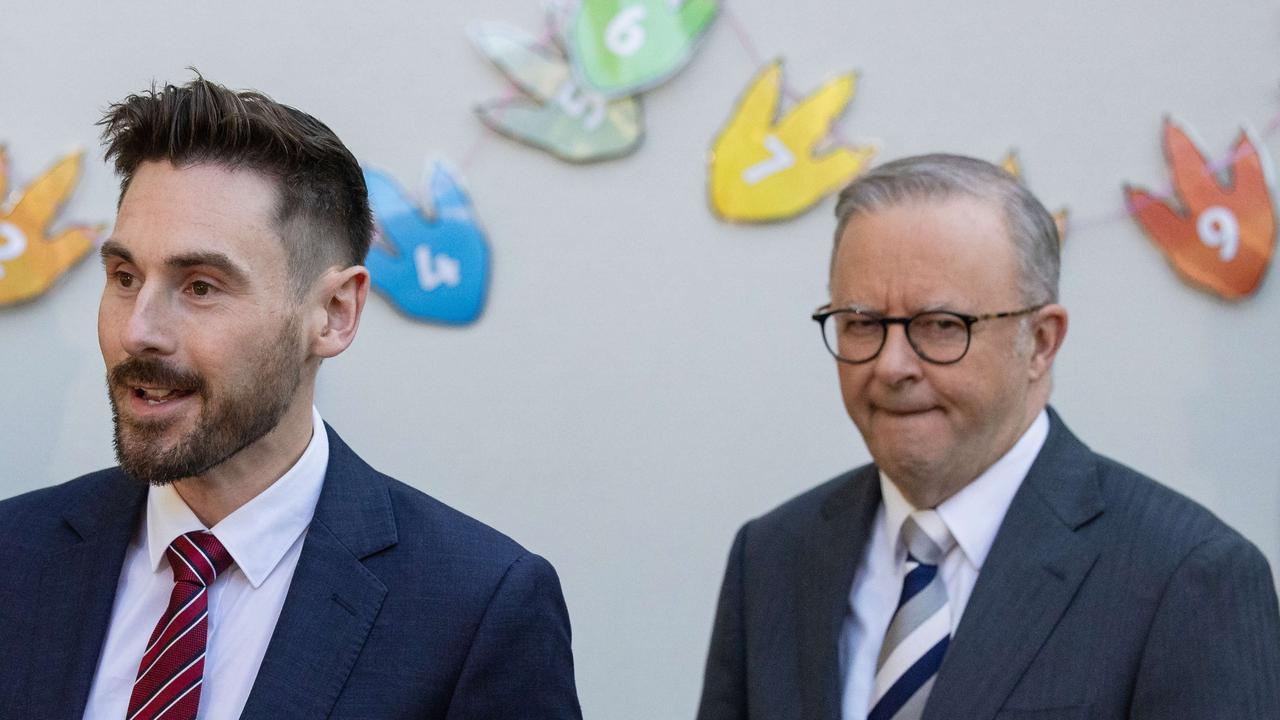Warnings over surge in youth transgender cases
Clinicians argue risks like infertility and lifelong regret outweigh the benefits to trans kids and teens.

Clinicians are calling for an urgent national inquiry into the safety and ethics of giving unproven hormone drug treatment to ever younger children who are confused about sex and gender.
A detailed submission, arguing that risks including infertility and lifelong regret outweigh the benefits to trans children and teenagers, was sent yesterday to Health Minister Greg Hunt and the Royal Australasian College of Physicians.
The first national figures, obtained under freedom of information legislation from major hospitals in NSW, Victoria, Western Australia and Queensland, show 2415 children were referred for gender treatment between 2014 and last year, with a 41 per cent increase in Victoria. Girls as young as nine are believed to be put on “puberty blocker” drugs, and boys from about 11.
A poorly understood surge in children and teens identifying as transgender — especially girls whose body perception can be more fraught — has arrived in the past five to 10 years.
The call for an inquiry by health sociologist Geoff Holloway, who wrote the submission, has been backed by 2019 Senior Australian of the Year paediatrician Sue Packer, Western Sydney University paediatrics professor John Whitehall and developmental psychologist Dianna Kenny.
“Who gave ethics approval for this treatment (at children’s hospitals) when it lacks any scientific basis and therefore is an experiment?” Professor Whitehall said. “We should give the psychiatry and psychology a full run before we start castrating children.”
The Royal Children’s Hospital in Melbourne, whose national standards for treatment of young people with bodily discomfort or “gender dysphoria” have been hailed as the “most progressive” in the world, has the biggest caseload in the country. It champions the internationally dominant “affirmation model” in which going along with the child’s wish to transition is often seen by clinicians, with good intentions, as compassionate and necessary.
The Weekend Australian put detailed questions to the hospital but was referred to the standards.
The rationale for puberty blockers, claimed to be safe and reversible, was to give the child respite from unwanted development, ease suffering and allow time to sort out identity.
Critics point out virtually all those on blockers go on to cross-sex hormones (and sometimes surgery), meaning an irrevocable transition to a medical approximation of the opposite sex. This makes them lifelong patients with a range of potential complications and a high risk of infertility, clinicians say.
Professor Whitehall said there was no rigorous long-term evidence that puberty blockers were safe and reversible for younger children, and studies in adults and sheep suggested damage to the growing human brain could not be ruled out.
The new standards flag the need for more research, “a comprehensive exploration” of a child’s history and fertility counselling. Professor Whitehall said informed consent was an illusion because children and teens could not grasp the life-changing nature of the decisions, even if gender clinics gave a more accurate idea of cost-benefit balances.
Critics say still-maturing young people are immersed in a world where many parents, teachers, clinicians, friends and social media are captured by emotive promotion of trans status, while activists try to suppress scepticism or inquiry as “hateful transphobia”.
Dr Holloway, who says the role of culture in gender dysphoria is unmistakeable, said: “People who object to what’s going on, they can lose their jobs, quite apart from being ostracised. This is supposed to be a scientific endeavour, not a witch hunt.”
In Britain, the well-known Tavistock Gender Identity Development Service has come under scrutiny, with ex-staff saying trans lobby pressure has contaminated clinical decisions. The clinic is running “an unregulated live (hormone drug) experiment on children”, says Oxford University’s professor of evidence-based medicine, Carl Heneghan, who points to the scarcity, weakness and brevity of supporting studies.
Critics say the trans lobby has encouraged conflation of the biological fact of birth sex with changeable gender identity. Clinicians stress the suffering of gender-confused children is real, and requires a compassionate response, but they put the case for non-intrusive therapy to bring distorted gender ideas into line with the reality of biological sex, rather than a risky medical reinvention of the body.
Dr Kenny said she believed gender dysphoria was in part “a social construct … propagated through the processes of groupthink and social contagion”.
Sceptical clinicians say the affirmation model too readily puts children on a path to medical intervention when evidence suggests the vast majority of those with early “gender dysphoria” will grow out of it, many emerging as gay or bisexual.
The rush to puberty blockers disrupts this self-correcting process and often involves only a cursory examination of mental health issues, family trauma, autism and other factors that may predate the gender dysphoria, it’s argued.
“Far be it from anybody to say that there are absolutely no people in the world who are genuinely gender dysphoric and who find it impossible to live in their biological sex,” said Dr Kenny, a clinician who until recently was a psychology professor at Sydney University. “What I’m saying is it’s been massively and irresponsibly over-diagnosed … (these children and teens) are going to be irrevocably damaged by the treatment they received.”
In June last year, paediatrician Michelle Telfer, director of the Royal Children’s Hospital Gender Service in Melbourne and lead author on the new treatment standards, said starting medical intervention as young as 13 or 14 was “not at all controversial within those with expertise because we all know that we have been doing this for years”.
“The consequence of not treating are known to be severe in terms of depression, self-harm, suicide,” she said. Sceptics say the suicide risk linked to gender dysphoria itself has been exaggerated, while evidence showing high suicide risk in adults who undergo full medical transition has been downplayed.
Professor Telfer said the proportion of patients regretting hormone treatment was “as low as 0.4 to 0.6 per cent”.
Dean, 28, from Sydney, is among those who come to regret going trans.
After 10 years as “Andrea”, dangerous encounters with men and the “self-torture” of hair removal and body sculpting, he began to think “this is not natural”. He believes it’s wrong for friends, parents and teachers to automatically “support” a young person’s wish to go trans.
“I’m really passionate about this because I have younger siblings, and they’re being taught about (trans) in school. Their minds are still developing: what if they grow up and want to have children naturally but their bodies have been changed?”
Raised in a loving, religious family, Dean was conscious of early same-sex attraction. “Me being trans, it was like a thing for me to escape being homosexual; it seemed more acceptable for me to be a woman.”



To join the conversation, please log in. Don't have an account? Register
Join the conversation, you are commenting as Logout